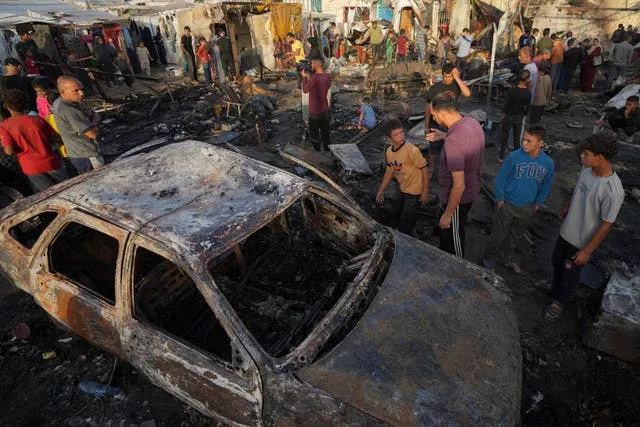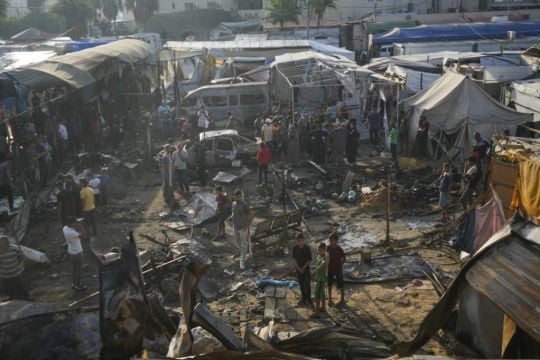Israeli strikes in the southern Gaza Strip killed at least 15 people overnight, including six children and two women, Palestinian medical officials said on Tuesday.
A strike early on Tuesday hit a house in the southern town of Beni Suhaila, killing at least 10 people from one extended family, according to Nasser Hospital in nearby Khan Younis.
The dead included three children and one woman, according to hospital records.

In the nearby town of Fakhari, a strike hit a house early on Tuesday, killing five people, including three children and a woman, according to the European Hospital, where the casualties were taken.
The Israeli military rarely comments on individual strikes. It says it tries to avoid harming civilians and blames their deaths on Hamas, accusing the militants of sheltering in civilian areas.
In the northern Gaza Strip, where Israel has been waging an air and ground campaign in Jabaliya for more than a week, residents said families were still trapped in their homes and shelters on Tuesday.
Adel al-Deqes said his relatives tried to move to another place in Jabaliya in the morning, but the military shelled them.
“We don’t know who died and who is still alive,” he said.

Ahmed Awda, another Jabaliya resident, said they heard “constant bombing and gunfire” overnight and on Tuesday morning.
He said the military destroyed many buildings in the eastern and northern parts of the camp, which dates back to the 1948 war surrounding Israel’s creation.
“They bombed many buildings; some of them empty buildings,” he said.

Later on Tuesday the Israeli Defense Ministry said it is speeding up development of new technologies to counter drone attacks such as the Hezbollah strike this week that killed four soldiers.
Israel’s air defences have performed well during a year of war against enemies across the region, particularly against rocket and missile attacks. But at times, they have struggled against drones, with unmanned aerial vehicles responsible for several deadly attacks.
The Defence Ministry said it tested a number of technologies being developed by Israeli companies as part of an “expedited process” to find new solutions.
It says it will analyse the results and select several technologies for further development with the aim of deploying them within months.







